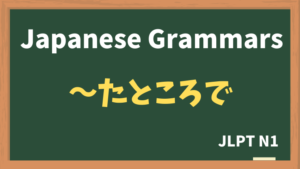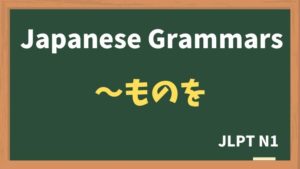
Explanation:〜こととて
fa-check-circleMeaning
"〜から / 〜ので"
理由を言って謝る時に使います。
"because"
Used to provide a reason or explanation for an action or situation. It is often employed in formal or written contexts to justify an action, implying that the speaker has a legitimate reason for it.
fa-check-circleForm
V(plain form)+こととて
イA(plain form)+こととて
ナAな+こととて
名詞の+こととて
fa-check-circlePoints
- Reason or Justification: "〜こととて" is used to explain or justify why something is being done or why a situation exists. It suggests that the action is understandable or acceptable under the circumstances.
- Formal Tone: This expression has a formal tone and is commonly found in written Japanese, such as letters, speeches, or official documents.
fa-check-circleJLPT Level
N1
fa-check-circleNote
① 古い表現です。
② 会話ではあまり使いません。
① An old-fashioned expression.
② It is not commonly used in conversation.
Sample sentenes
子供のやったこととて、許してやってくれませんか。
Since it was done by a child, could you please forgive them?
突然のこととて、何も準備ができておりません。
Because it was sudden, I haven’t been able to prepare anything.
昔のこととて、何も覚えていません。
Since it was a long time ago, I don’t remember anything.
慣れないこととて、失敗してしまいました。申し訳ございません。
Since I’m not used to it, I made a mistake. I apologize.
初めてのこととて、とても緊張しました。
Since it was my first time, I was very nervous.
Vocabulary
| Japanese |
English | |
| 許す | ゆるす | to forgive |






